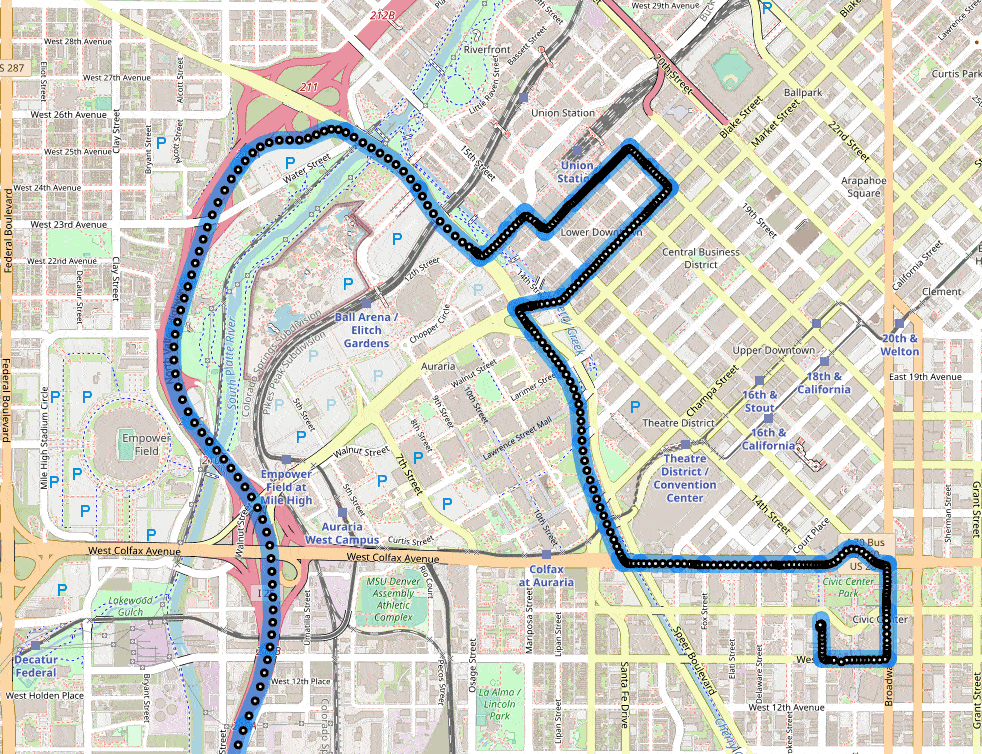Mappymatch is a pure-python package developed and open sourced by the National Renewable Energy Laboratory. It contains a collection of "Matchers" that enable matching a GPS trace (series of GPS coordinates) to a map.
The current matchers are:
LCSSMatcher: A matcher that implements the LCSS algorithm described in this paper. Works best with high resolution GPS traces.OsrmMatcher: A light matcher that pings an OSRM server to request map matching results. See the official documentation for more info.ValhallaMatcher: A matcher to ping a Valhalla server for map matching results.
Currently supported map formats are:
- Open Street Maps
pip install mappymatchIf you have trouble with that, check out the docs for more detailed install instructions.
The current primary workflow is to use osmnx to download a road network and match it using the LCSSMatcher.
The LCSSMatcher implements the map matching algorithm described in this paper:
usage:
from mappymatch import package_root
from mappymatch.constructs.geofence import Geofence
from mappymatch.constructs.trace import Trace
from mappymatch.maps.nx.nx_map import NxMap
from mappymatch.matchers.lcss.lcss import LCSSMatcher
trace = Trace.from_csv(package_root() / "resources/traces/sample_trace_1.csv")
# generate a geofence polygon that surrounds the trace; units are in meters;
# this is used to query OSM for a small map that we can match to
geofence = Geofence.from_trace(trace, padding=1e3)
# uses osmnx to pull a networkx map from the OSM database
nx_map = NxMap.from_geofence(geofence)
matcher = LCSSMatcher(nx_map)
matches = matcher.match_trace(trace)
# convert the matches to a dataframe
df = matches.matches_to_dataframe()Check out the LCSS Example for a more detailed example of working with the LCSSMatcher.
